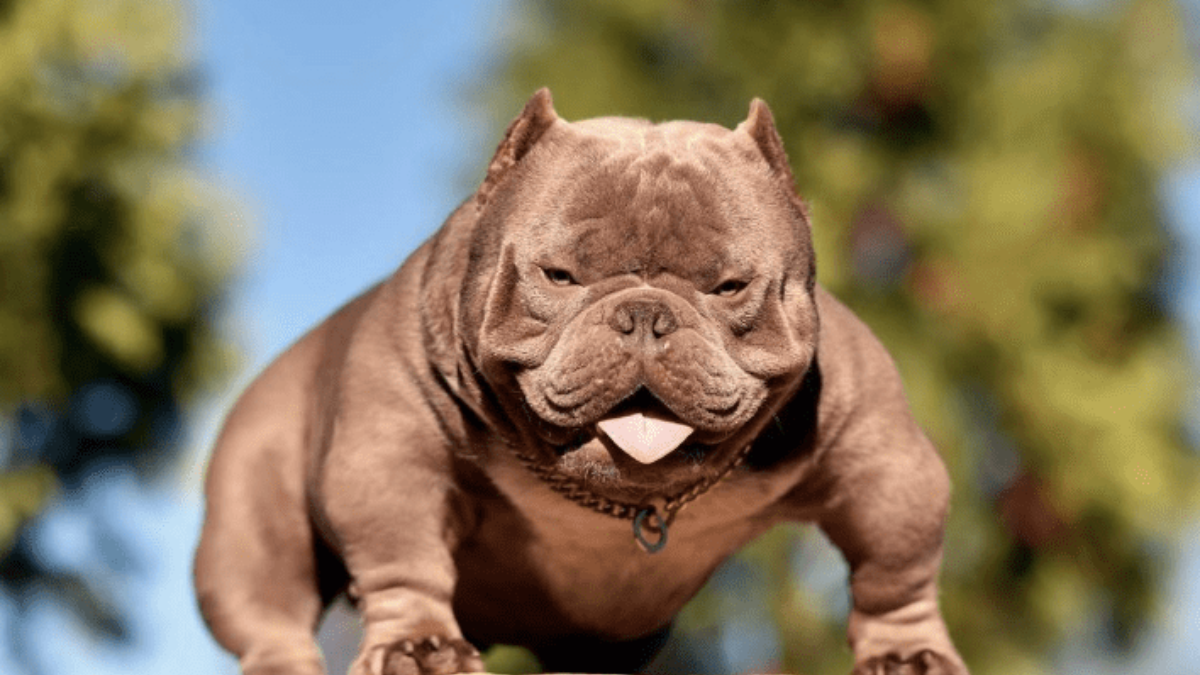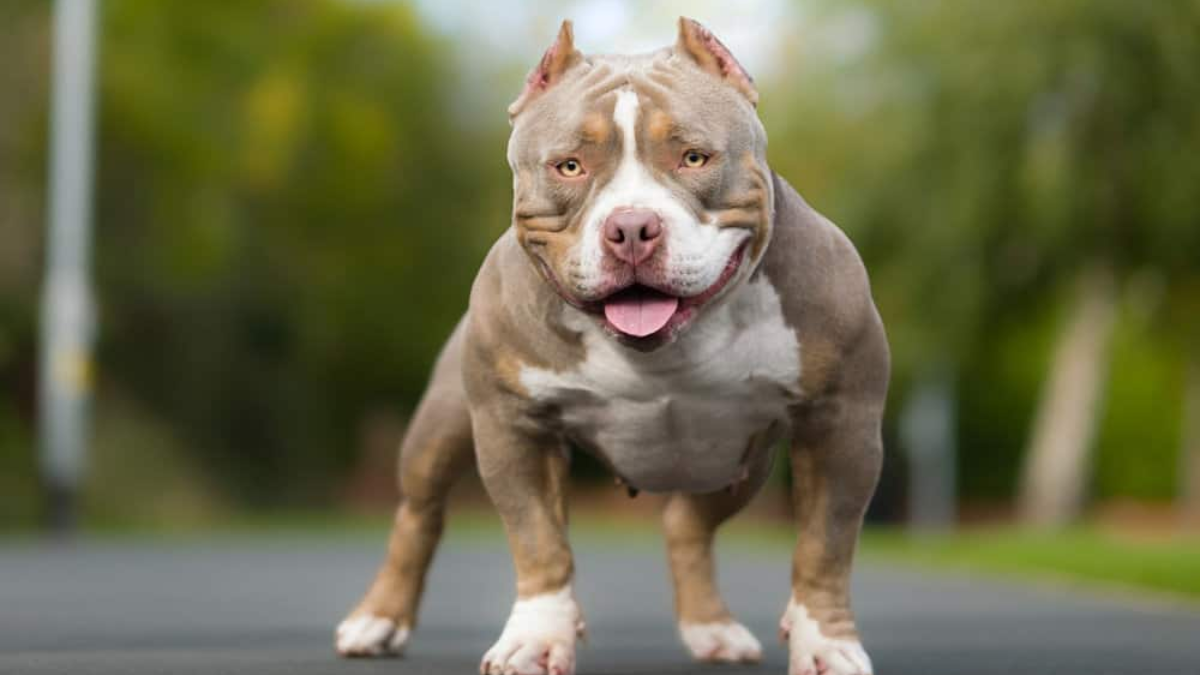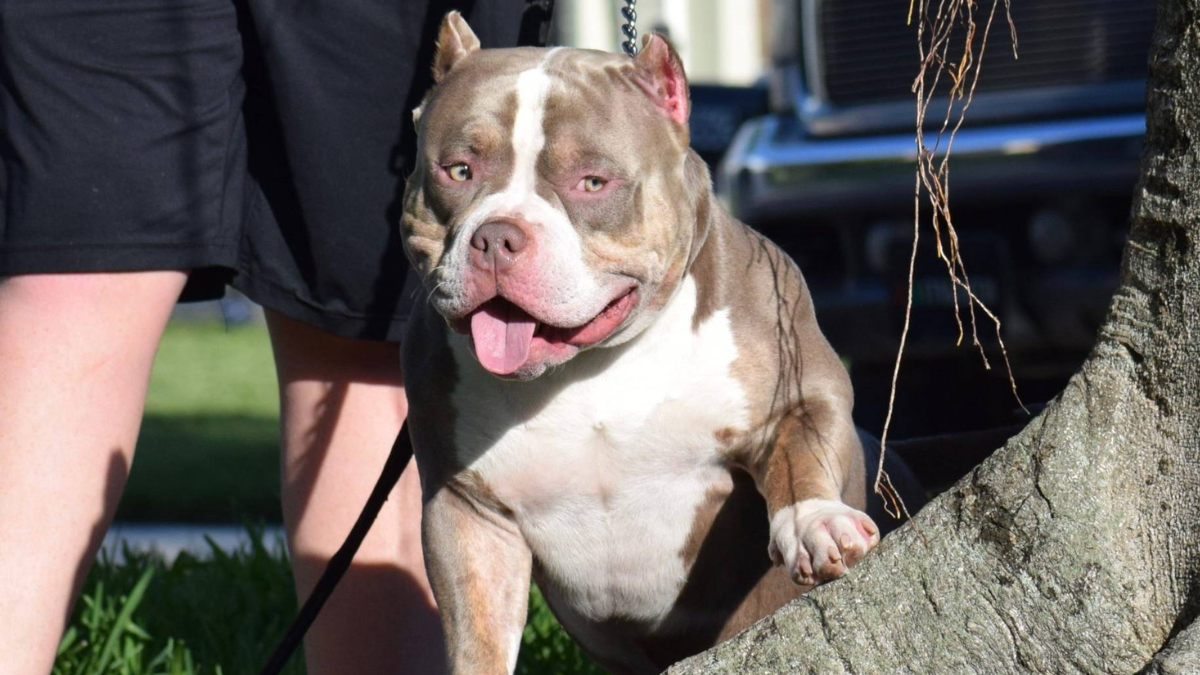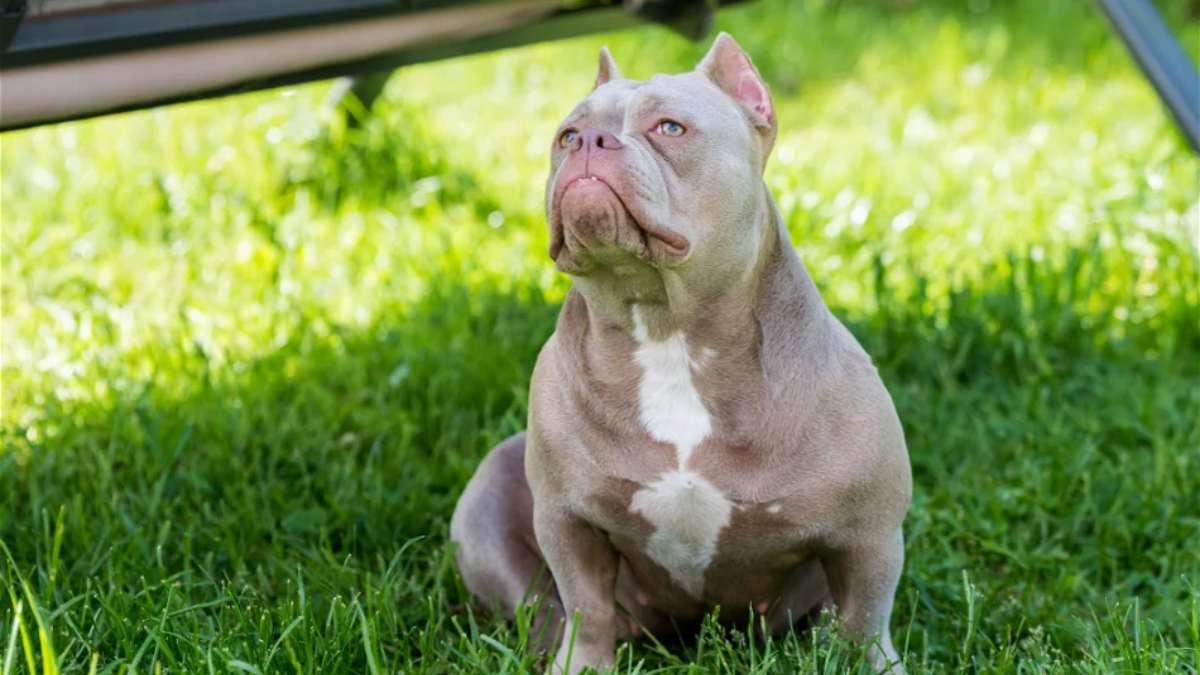The Exotic Bully is a captivating addition to the world of dog breeds, intriguing both enthusiasts and breeders globally. Unlike the American Bully, it boasts distinctive traits like a compact, muscular body and a unique head structure. Derived from Bulldog ancestry, it embodies a blend of Exotic Bully Breeds traits alongside its own distinctive characteristics. Explore the fascinating world of exotic bully today!
Originating in the United States, the Exotic Bully is the result of selective breeding techniques that focus on enhancing specific physical traits. Despite its muscular build and tough appearance, the Exotic Bully is known for having a gentle and affable personality, which makes it a desirable companion pet. This breed is often confused with other bully breeds due to its name and physical attributes, but it maintains a distinct status amongst other variations, like its relative the American Bully.

Due to its recent emergence as a breed, the Exotic Bully has sparked debates regarding breed standards and health concerns typical for Bulldogs and Bully breeds. As with any breed that undergoes a quick rise in popularity, there are discussions surrounding responsible breeding practices and the importance of maintaining the health and well-being of these dogs. Breeders and owners are encouraged to prioritize these aspects to ensure the Exotic Bully can lead a full and active life.
Breeding and Genetics
In the world of canine breeding, understanding the genetic makeup and breed standards are fundamental to developing dogs like the Exotic Bully. Breeders must adhere to certain guidelines to maintain the breed's distinct characteristics and recognition across various registries.
Breed Standards and Recognition
The Exotic Bully is recognized by specific bodies such as the American Bully Kennel Club (ABKC) and the U.S. Bully Registry (USBullyReg), which set the breed standards. These standards typically include physical characteristics, temperament, and health requirements that breeders must strive to adhere to. For instance:
- Body Type: Compact and muscular
- Temperament: Confident and friendly
- Health: Free from genetic disorders
The International Bully Coalition (IBC) and the International Bully Register (IBR) also contribute to the breed's international recognition and facilitate its breeding standards. The American Kennel Club (AKC) does not recognize the Exotic Bully, which distinguishes it from the standard American Bully.
History and Development of the Exotic Bully
The Exotic Bully is a relatively new breed, developed through selective breeding techniques. Breeders aimed to emphasize specific physical traits such as a shorter stature and more pronounced features compared to the standard American Bully. The genetic makeup of the Exotic Bully includes a mix of breeds such as the American Bully, French Bulldog, Shorty Bull, and English Bulldog, resulting in a distinctive appearance.

The breeding of Exotic Bullies can be complex, involving careful selection and pairing to avoid health issues associated with their unique physique. Maintaining genetic diversity while achieving the desired look requires a thorough understanding of canine genetics and a commitment to the breed's long-term health.
Physical Characteristics
The Exotic Bully is a distinct breed notable for its unique physical characteristics, which include a robust muscular build, a signature coat texture and color range, and several exaggerated features that set it apart from other bully breeds.
Size and Weight
The Exotic Bully comes in various sizes, often categorized as Micro, Pocket, and Clean Exotic Bully. Each type presents different dimensions:
- Micro Exotic Bully
- Height: 10 inches or less
- Weight: Proportionate to height, usually under 30 lbs.
- Pocket Exotic Bully
- Height: 14-17 inches
- Weight: Typically ranging from 35 to 50 lbs.
- Clean Exotic Bully
- Larger than micros and pockets
- Weight and height vary but maintain a muscular and compact stature

Appearance and Coat Colors
Their coats exhibit a rich variety of colors, including but not limited to:
- Solid Colors
- Black
- Chocolate
- White
- Mixed Colors
- Tri-color
These dogs showcase a smooth and glossy coat, adding to their distinctive appearance.
Distinctive Features
Exotic Bullies display several distinctive features contributing to their unmistakable look:
- Head: Typically large with a round, flat face.
- Muzzle: The muzzles are noticeably short, often leading to an undershot or overshot bite.
- Chest: Broad and deep, signifying strength.
- Neck: Muscular and sometimes adorned with wrinkles.
- Muscle Tone: They exhibit impressive muscle tone, indicative of their Staffordshire Terrier heritage which includes American Staffordshire Terrier and American Pit Bull Terrier breeds.
- Profile: A short, compact dog, their body profile is stocky, contributing to the distinctive appearance inherited from bloodlines such as the Old English Bulldog.
Temperament and Behavior
The Exotic Bully is known for its unique temperament which combines traits from its ancestors such as the English Bulldog, French Bulldog, and American Bulldog. They are typically calm, friendly, and adaptable to various living situations, making them suitable for both houses and apartments. Their behavior often reflects the intensive breeding efforts by bully breeders to enhance these companionable traits.

Compatibility with Families and Other Pets
Exotic Bullies generally exhibit a friendly and affectionate demeanor and can blend well into family settings. Their loyalty towards their owners makes them excellent companions. Families with children benefit from the dog's affectionate nature, provided children are taught to interact with the dog respectfully and gently. Early socialization is crucial for these dogs to foster a positive temperament towards other pets.
- Children: Usually gentle and patient, but interactions should always be supervised.
- Other Pets: Can coexist peacefully when properly introduced and socialized at an early age.
Typical Personality Traits
The personality of an Exotic Bully is often described using terms such as loyal, affectionate, and calm. Despite their stocky and muscular appearance, they usually are not aggressive. Instead, their temperament leans more towards being friendly and easygoing.
- Loyal: They tend to form strong bonds with their owners.
- Affectionate: Known for enjoying close contact and cuddle sessions.
- Calm: They often have a relaxed disposition, especially when their exercise needs are met.
Note: The behavior of individual dogs may vary and depends on factors such as breeding, training, and socialization.
Care and Maintenance
The exotic bully requires attentive care and maintenance to lead a healthy life, with a focus on exercise, diet, and grooming. They are a distinctive breed with unique needs that differ from those of the American bulldog and the Shorty bull.

Exercise and Diet
Exotic bullies benefit from regular exercise to maintain their weight and muscle tone, which aligns with the breed standard. A balanced diet is crucial, often involving high-quality dog food tailored to their smaller size and specific traits. Owners should avoid overfeeding, as obesity can lead to health issues.
- Exercise: Moderate daily exercise, like short walks
- Diet:
- Puppy (up to 1 year): 3-4 meals a day of puppy-specific food
- Adult: 2 meals a day of high-protein adult dog food
Health and Lifespan
The exotic bully, when kept clean and healthy, has an average lifespan of 10-12 years. Regular check-ups with a vet are recommended to monitor for breed-specific ailments. It is essential to verify breed history through the American Bully Registry to understand potential inherited health conditions.
- Common Health Issues: Respiratory and joint issues, due to their build
- Lifespan: 10-12 years
Grooming Needs
This breed's coat is short and requires minimal yet consistent grooming to stay clean and natural. Owners should establish a grooming routine that suits the dog's needs without over-bathing, which can strip natural oils from the skin.

- Regular Grooming:
- Weekly brushing
- Monthly baths
- Special Considerations:
- Merle coats may require extra care to prevent sunburn
- Cleaning of facial wrinkles to prevent infection
Conclusion:
In conclusion, understanding and tending to the needs of exotic bully breeds is crucial for their well-being. By providing love, proper training, and a nurturing environment, you're ensuring a fulfilling life for these unique companions. Remember, each breed has its own quirks and requirements, so take the time to learn and adapt accordingly. With patience and dedication, your bond with exotic bully breeds will grow stronger, enriching both your lives with endless joy and companionship.




